- Home
- Alice Hoffman
The Third Angel Page 6
The Third Angel Read online
Page 6
“You can't make someone love you, you know. I learned that with your father. I didn't want him if he didn't want me. I saw what that could do to a person.”
“I did something terrible,” Maddy said. “I can't ever be forgiven.”
“Trust me,” Lucy said. “You can.”
After Maddy went up to her room to lie down, Lucy remained at the bar. She called for a whisky and soda. She knew she hadn't been a very good mother, especially to Maddy. She thought it would be better if she kept her distance. Her daughters wouldn't miss her so terribly if anything happened to her. They wouldn't be devastated if they were already on their own.
When she'd first heard that Maddy was staying at the Lion Park, Lucy had phoned over. She hadn't even been sure Teddy Healy would still be alive. But the girl at the front desk who'd answered her call assured her that he was, and then Maddy herself mentioned him. Maybe it was fate or perhaps it was only circumstance; either way it seemed time for Lucy to go back. There were several elderly customers at the bar, but it wasn't until a gentleman came in late in the evening and spoke to the bartender that she was certain it was Teddy. She remembered his voice. His features looked familiar, even after all this time. As for Teddy, he didn't seem to recognize her at all. Lucy, after all, was a woman in her fifties and he was an old man.
Over the years Teddy had been a reliable godfather to his brother's three children. He always remembered birthdays and had been at every graduation ceremony. But drinking was the only thing that he'd taken seriously for a good part of his life. Some of the women at the bank where he'd worked had made it clear they were available, but Teddy was wary. If he wanted female companionship when he was younger, he phoned a business that offered those services. It was easy enough; an attractive woman would come up to his place, and they'd have sex and he'd pay her, and then he would go to the Lion Park and get drunk. That was the constant in his life. The bar at the hotel. The hour when he went upstairs and relived what had happened to him.
One night, many years ago, Teddy had gotten so inebriated that the porter at the Lion Park had tossed him out on the street. It was the sixties, a time of wild goings-on; drugs were everywhere and yet Teddy was the one thrown out on his ear. A girl had come over and said something to him. She was stern and very pretty. Things were different back then; young women talked to strangers. This one helped him into a taxi and told him he'd kill himself with loss of liver function if he didn't quit drinking. She told him to think of someone other than himself. You never knew who you were helping, she'd said. It's your duty as a human being, after all.
Teddy began to sober up after that. He started to travel, to Africa and the Middle East, places where the landscape was huge, where life had gone on forever and his pitiful existence seemed completely unimportant. He still drank, but it wasn't the same. He wasn't obliterating himself. He gave most of his money away, to schools in the countries he visited, to children whose tuition he paid. He also took care of his nephews' university educations. He visited elderly people in homes and read to them. He had a beautiful reading voice, people said. He went on to make recordings for unsighted readers. He thought if he did enough good in the world, perhaps that young woman he'd once met might be right; what he'd lost on the night of the accident might come back to him.
Teddy did have liver problems and emphysema, just as that young woman had once predicted, but he still went to Africa once a year, to Nigeria. He had been involved in building a school there, and was helping to raise money for a girls' dormitory, so they could attend classes as well. But he still came back to the lounge at the Lion Park, and not simply because it was a pleasant place to be. This was the place where his life had gone wrong.
Lucy was surprised by how fragile he looked, a man who needed his nap in the afternoon.
“Teddy Healy. Is it really you?”
Teddy raised his coffee cup to her. He rarely had more than a drink or two these days. “Here's to you,” he said, clearly having no idea who she was.
“I'm Lucy Green. Lucy Heller now.”
Teddy Healy stared at her. An attractive dark-haired woman. A total stranger. Then she did something with her face, a sort of half smile, and he saw the girl she had been years ago when she had stayed here.
“Lucy,” he said. “Yes.”
“I tried to write to you at this address, here at the hotel, when I returned to the States, but the letters came back to me.”
“Myself and letters were never a good match.”
“I've thought about you often, Mr. Healy.”
“Well, God bless you,” he said. “Thank you.”
“My daughter lives in London. One of them. She's about to be married, but her fiancé is very ill. They don't expect him to survive.”
“Stay away from letters and marriage,” Teddy Healy said. “That's my best advice.”
“Right,” Lucy said. She knew the pain such things had caused him.
“I'm sorry for your daughter's troubles,” Teddy added. “That's a very sad thing.”
“Thank you. I was sorry for yours. I should have come back here years ago. I meant to, but I got caught up in my own life. I made more mistakes than I could begin to count.”
Teddy Healy shrugged. He called for another coffee and one for Lucy as well. “To hell with the past,” he said.
“My daughter says the place is still haunted.”
“So I've heard.” Teddy glanced up and saw she wasn't going to let it go at that. “You don't believe in that nonsense, do you?”
“I saw it once,” Lucy said. “I wasn't much of a witness. I fell and hit my head.”
“You've got a good, long memory,” Teddy said. And that was unfortunate; that was what he always worried about. That he'd ruined her life as well as his own. “I suppose you remember I was a coward.”
“I remember I thought everything that had happened was my fault.”
“Well, that's a foolish idea. It was mine. I took away your childhood. There's no way to make amends for that. I can assure you.”
“Is that what you think? If anything, you gave my childhood back to me.”
Teddy laughed. “That I don't believe.”
“You did. My father married a woman he met over here, and we lived together in New York. I walked my dog through Central Park every day, and I was happy, something I never thought I'd be again. What I saw up on the seventh floor of this hotel was an innocent man. I definitely remember that. Come with me and we'll see.”
“To tell you the truth I don't go upstairs anymore. Not since I cut down on the drinking.” The barman brought over their coffees. “Put that on my tab.” Teddy looked up at the clock. It was nearly ten-thirty, that dreadful time.
“I think we should go upstairs and be done with it, Mr. Healy.” She'd already stood up.
“I won't get rid of you until I do, will I, Lucy?”
She shook her head. He recalled that she'd been stubborn then, too.
They took the lift up. She hadn't remembered it to be so small or so creaky. They got out on the top floor. Seven. There had been some work done along the molding where the pet rabbit who'd lived in the hotel back when Lucy was a girl had torn off strips of wallpaper. But most everything seemed very dim, in need of repair.
“My daughter's staying on this floor.”
“She could have found a better place to stay,” Teddy said.
“We all could have done that.”
Teddy chuckled. He looked quite pale.
When they got to 707, Lucy knocked, then opened the door.
The room was empty and cold. Some extra mattresses were stored against one wall. Lucy left the door open and she and Teddy stood in the hallway, looking in. Teddy glanced at her once and she felt his uncertainty. They both remembered everything. They might not recall what they'd had for breakfast, but they assuredly recalled exactly what had happened in this room.
It was now ten-thirty. When Lucy's husband had left, she had often thought about Teddy Healy. She knew t
hat love wasn't something you could bargain for. She remembered the girl she had been; in many ways, she was still that girl. She had lost her faith in people when she was young, long before she'd come to London.
They could hear some guests down on the sixth floor, a little tipsy, laughing. It was ten-thirty and then ten thirty-five and then it was a quarter to eleven. There was no evidence of a ghost, or whatever the thing had been.
“What happened to it?” Teddy Healy asked.
Lucy leaned in close to him. “You're a good man. Maybe that's all you needed to know. You always were. You were good to me.”
“What I did for you was nothing.”
“You couldn't be more wrong, Mr. Healy. It was everything to me.”
MADDY SPENT THE next day alone. It was nothing new to her. But this day was different. Today she wished she was with the rest of her family. She went out wearing jeans and flip-flops and the T-shirt she had slept in. The heat wave hadn't eased and many restaurants had run out of ice and cold drinks.
Maddy had her hotel key and some money in her pocket. She felt homeless and lost. She found her way to the garden in the park with the huge white roses, where she sat on a bench. A man was sleeping on the bench directly across from hers. It was quiet in the garden. Maddy couldn't hear the traffic on Brompton Road. Time seemed to have slowed down. For once she thought about the things she had done and she wasn't pleased. When the man began to moan in his sleep, Maddy got up. She walked for miles. By the end of the day her feet hurt; she went into a pub in the late afternoon where she drank a warm Coke. No one bothered her. A few people glanced at her, then looked away. A pretty woman in bad shape. She hadn't washed her hair, only pinned it up. Her clothes were rumpled and she looked on edge, as though she'd had better days in some other place and time.
Maddy tried to phone her mother's hotel room several times to check in and see how Paul was doing, but Lucy was never in. She left six messages with the front desk. She phoned the hospital, but when the switchboard answered and asked who it was she'd like to speak to, she hung up.
It was nearly dark when Maddy made her way out of the pub. She had wasted the entire day with soda and chips. The air was ashy and deep. There was a rosebush growing by a garden gate around the block from the hotel, with flowers that appeared almost blood red in the gathering dark. That night underneath the sycamore tree when they cut themselves, Maddy realized that if she decided not to feel any pain, nothing could hurt her. She let her sister be the one with hope, while she believed in nothing. She was more like her mother than she would ever have imagined.
Maddy ate her dinner in the hotel restaurant that night. She sat at the bar.
“You're here more than Teddy is,” the barman said. “A regular. He's even been getting his post here.” He held up an envelope. Inside was an old snapshot of a girl and a dog sitting on a bench. The barman had peeked. Someone had written with gratitude on the back of the photograph.
“Well, I won't be a regular after this week,” Maddy assured him. “I'll be going home.” She ordered soup and wine, but she drank just the wine. The soup was watery with thinly cut vegetables floating on top. She had no appetite anyway.
“I hear we're rid of our ghost,” the barman went on. “I have no idea how it was done, but it's a miracle. Teddy himself tried to shoot him once, but the bullet went right through him. As far as I can tell, ghosts are the essence of a person filtered down to the basics. A circle of vibrant illumination. That's what we're supposedly all made of.”
“You sound like a believer,” Maddy said.
“I saw him on occasion,” the barman confided. “Wandering the hallway. Lost as a mouse. Poor fellow. I guess he finally went on to his just reward.”
When Maddy went upstairs she ran her hand along the wall to feel for the bullet hole in the plaster outside the door to 708. She went into her room, took off all her clothes, and put on her blue dress. She had to stand on the desk chair to get a look since the mirror was small. The dress suited her; Allie had chosen well. She knew Maddy. The color was perfect.
Maddy had seemed not to need anyone, but inside she was broken, made of bones and black ribbons, blood and darkness. She fell asleep in the hot, sticky room with the desk lamp switched on, still wearing the bridesmaid's dress. She heard a whisper in her dream; a man was speaking, and she was guided by his voice. There was a trail of stones, and she followed them until she saw Paul. He was wrapped in white tape and his eyes were white as well. He said, Bury me under the sycamore tree. In her dream, Maddy was barefoot and standing on stones; her feet had begun to bleed. She wanted to say, Of course, I'll do anything you ask, but she couldn't speak. She was falling into pieces. A hand, an arm, a leg. She wondered if she could put herself together again with red thread and needles. She wondered if she would have the strength to lift the shovel and dig the grave he'd asked her for. There were white roses growing, but she couldn't see them in the dark. She'd simply have to believe they were there.
• •
ALLIE WAS BY his bedside when it happened. It was 5:22 a.m. She noticed the clock, the way people notice odd, practical things just at the moment when everything seems so unreal. There was the table. There was a water glass with a straw. It was that silver-colored time between night and morning, when the sky is still dark, but lights are flicking on all over the city. It was quiet, the way it is in winter when snow first begins to fall. But it was the fifteenth of August, the morning after her wedding day. She had been married a week ahead of schedule.
On the day of her marriage, the doctor had called Allie into his office to say that he thought Paul would not last twenty-four hours. He might not even last the day. His vital signs were slipping and he was unresponsive; his dosage of morphine was so high it was toxic. Allie thanked the doctor and sat there unable to move.
“You don't have to thank me,” the doctor said. His name was Crane. He had a huge heart and probably shouldn't have been a doctor. “You can hit me if you want to.”
All Allie wanted to do was use his phone. She called Paul's parents to tell them to drive up to London immediately. His mother would fall to pieces. All through the autumn, when Paul had been having the chemo that made him so desperately ill, he had wanted to go home on the weekends. And then early that summer, when it came back so quickly, he looked forward to those visits more than ever. It was a tiring trip, but he didn't care. Allie often had to drive. Paul had never allowed himself to be a passenger before, but now he dozed on the way. That was when she first began to understand what was happening. That was when she began to fall in love with him.
She hadn't lied to Maddy; she'd hadn't loved him before. When she accepted his proposal of marriage she had done so because it appeared to be the next step. It had seemed the right time, if not the right man. Paul was indeed difficult and self-centered. He always had his defenses up. The charm that had attracted her at first had worn thin. Allie had wanted out so badly, she didn't even care that he had prowled around when he was at his angriest. And then this summer, after the recurrence, when she least expected it, everything had changed.
On those trips to Reading, Paul would often vomit out the window, or they'd have to stop by the side of the road or at a tea shop because he was so nauseated he couldn't stand the movement of the car. But as soon as he got to the village where he'd grown up, he was happy. The house was called Lilac House and had been in the family for years, nothing very elaborate, just a small pretty country house with a little cottage in the rear of the property that was surrounded by boxwood. There was indeed a row of huge old lilacs in the garden. Some were purple, some violet, some were the color of cream. In the summertime, however, they were just a hedge of green, heart-shaped leaves.
Paul was a bird-watcher, something Allie hadn't known about him till then. As it turned out, there was a great deal she didn't know. That he was kind, for instance. He went out of his way to speak to old people whenever they stopped for tea on their travels, taking time to discuss the weather and sta
te of the world. He liked to go to a fruit stand and bring his mother a basket of apples when they came to visit. “Get the good ones,” he'd call to Allie when he could no longer step out of the car to choose the fruit himself.
“Absolute best apples in the universe,” he would insist when she came back to the car. “I was a vegetarian when I was ten,” he told her.
“Were you?” Allie was surprised. He liked his roasts and stews.
“My grandfather was one and I wanted to please him. He was quite the old guy. A doctor. I admired the hell out of him. Whatever he did, I did.”
“What else did you do when you were ten?” Allie asked. Paul was already having difficulty with his eyes.
“I dreamed of you,” he said.
“Bullshit.” She'd laughed.
“Football,” he said. “Cooking.”
“No.”
“Oh, yes. Jam pancakes and puddings and apple tarts. Vegetable stews. I was good at it. And I did dream of you,” he added. “Whether or not you believe it, it's true.”
Once they'd arrived, Paul would sit on the lawn of Lilac House bundled up in a sweater, a wool blanket covering him. He could identify almost any bird from its song. He was a fan of the underdog, birds other people thought of as pests: ravens, magpies, kestrels. On the other hand, he could be sentimental; he adored mourning doves and said they had the sweetest voices of all. At Lilac House, he spread out seed and bread crumbs and sat there on the lawn, still as could be, as birds gathered around him.
“He has perfect pitch,” Frieda told Allie one evening as they were fixing dinner together in the kitchen.
“I didn't know that,” Allie said.
Although the house wasn't fancy, it was quite lovely, with the details of another era when workmen were artists. There were intricate moldings and fireplace mantels framed by carved owls; there was an old earthenware sink in the kitchen and a stove with six burners. On the pine table sat a huge pot of cut flowers from the kitchen garden. Everything smelled sweet.

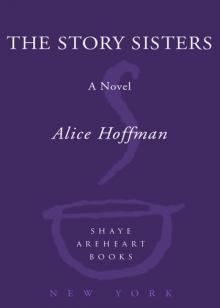 The Story Sisters
The Story Sisters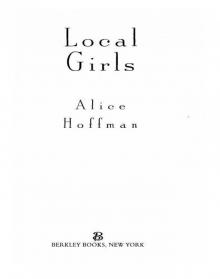 Local Girls
Local Girls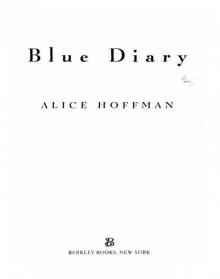 Blue Diary
Blue Diary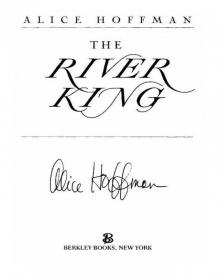 The River King
The River King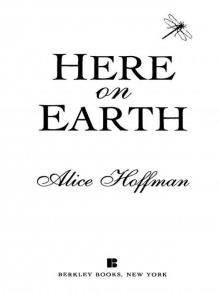 Here on Earth
Here on Earth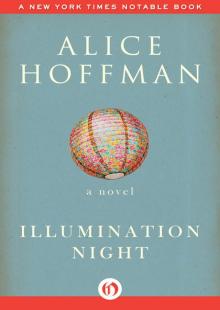 Illumination Night: A Novel
Illumination Night: A Novel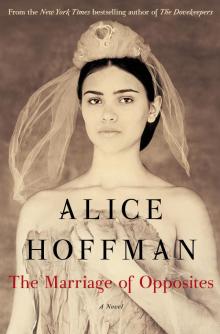 The Marriage of Opposites
The Marriage of Opposites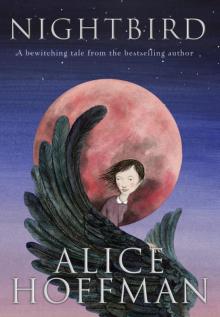 Nightbird
Nightbird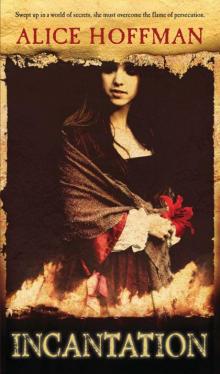 Incantation
Incantation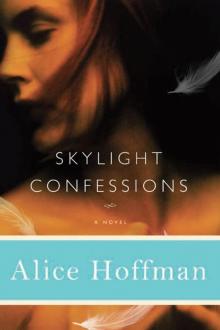 Skylight Confessions
Skylight Confessions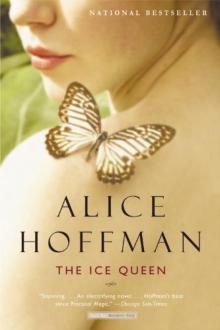 The Ice Queen
The Ice Queen Second Nature
Second Nature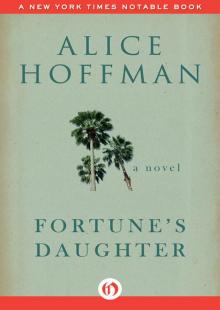 Fortune's Daughter: A Novel
Fortune's Daughter: A Novel Seventh Heaven
Seventh Heaven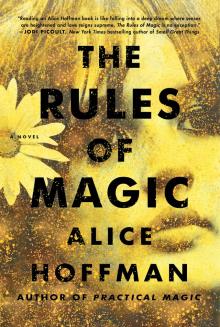 The Rules of Magic
The Rules of Magic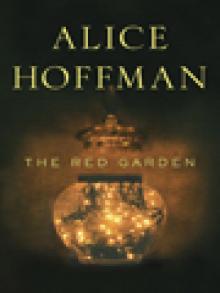 The Red Garden
The Red Garden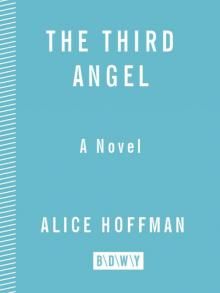 The Third Angel
The Third Angel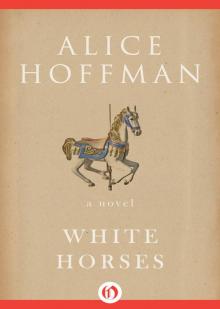 White Horses
White Horses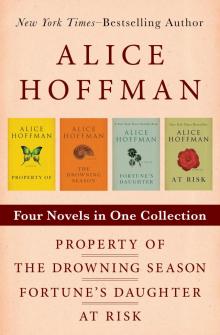 Property of / the Drowning Season / Fortune's Daughter / at Risk
Property of / the Drowning Season / Fortune's Daughter / at Risk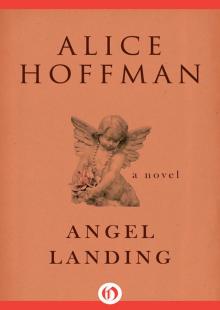 Angel Landing
Angel Landing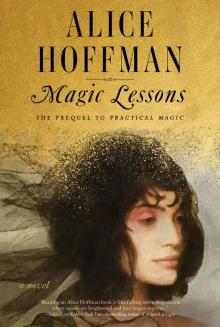 Magic Lessons
Magic Lessons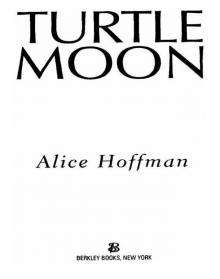 Turtle Moon
Turtle Moon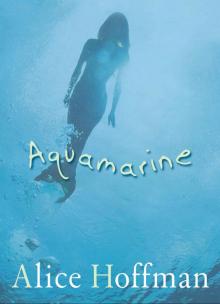 Aquamarine
Aquamarine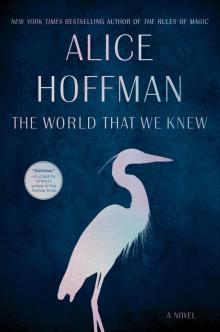 The World That We Knew
The World That We Knew Faithful
Faithful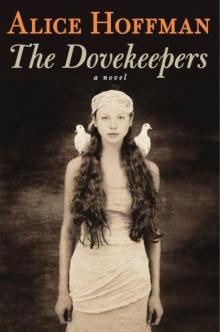 The Dovekeepers
The Dovekeepers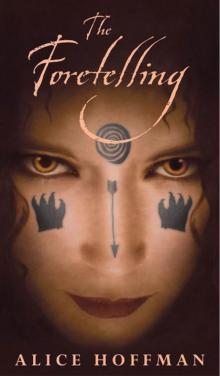 The Foretelling
The Foretelling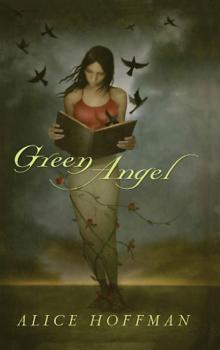 Green Angel
Green Angel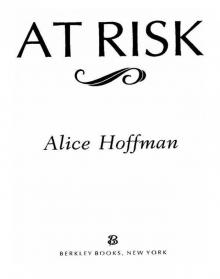 At Risk
At Risk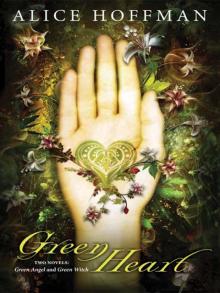 Green Heart
Green Heart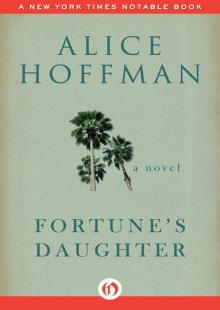 Fortune's Daughter
Fortune's Daughter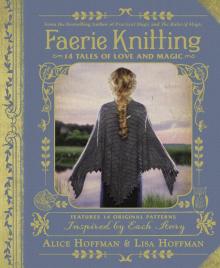 Faerie Knitting
Faerie Knitting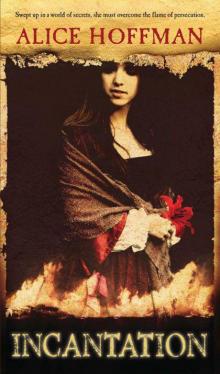 Incantation (v5)
Incantation (v5)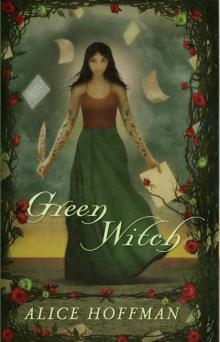 Green Witch
Green Witch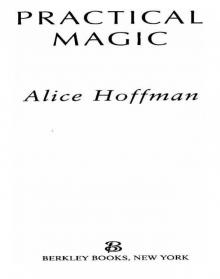 Practical Magic
Practical Magic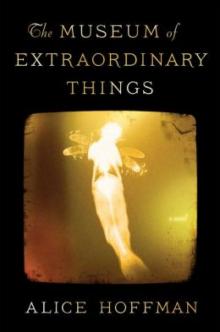 The Museum of Extraordinary Things
The Museum of Extraordinary Things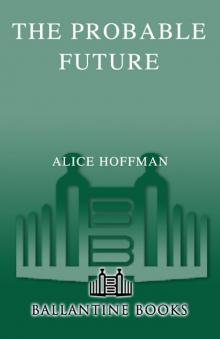 The Probable Future
The Probable Future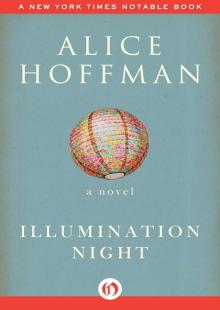 Illumination Night
Illumination Night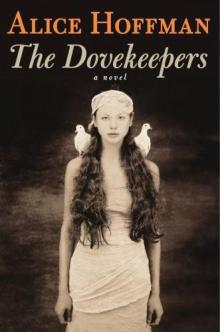 The Dovekeepers: A Novel
The Dovekeepers: A Novel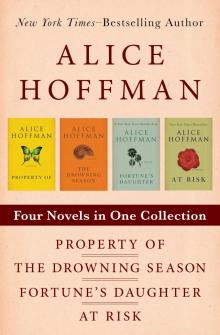 Property Of, the Drowning Season, Fortune's Daughter, and At Risk
Property Of, the Drowning Season, Fortune's Daughter, and At Risk